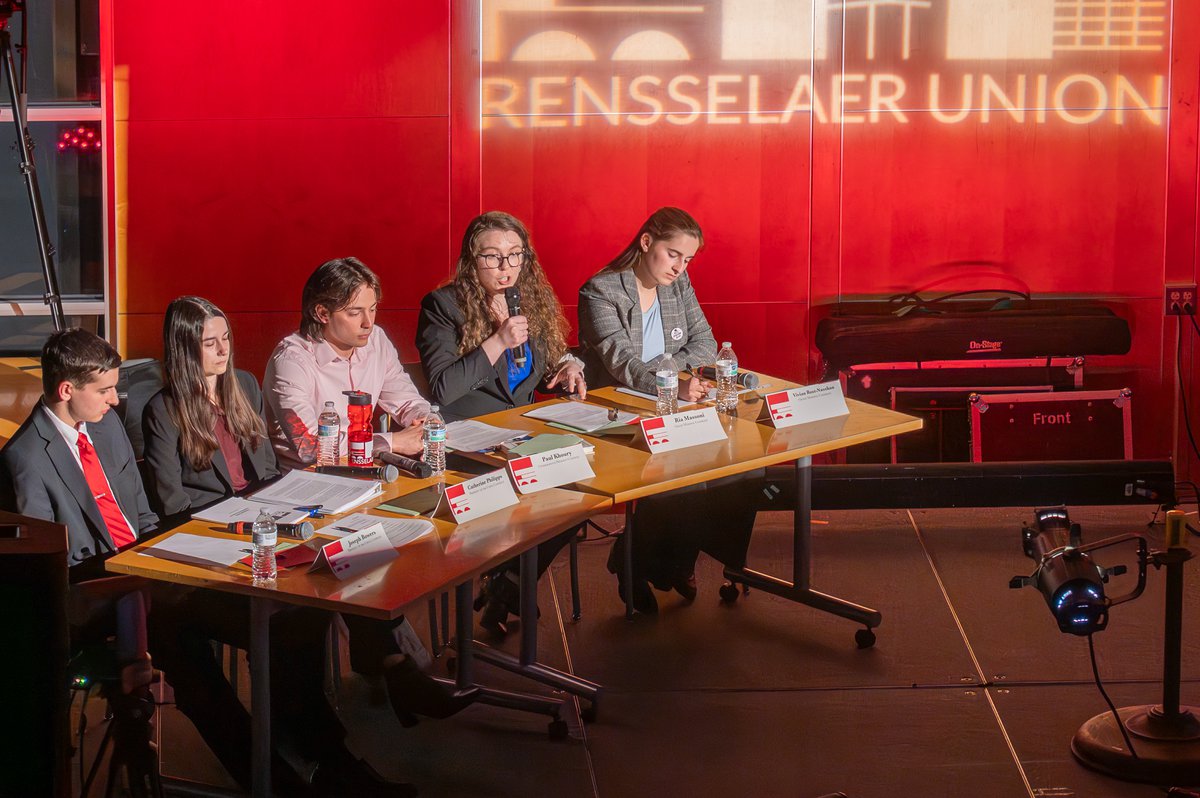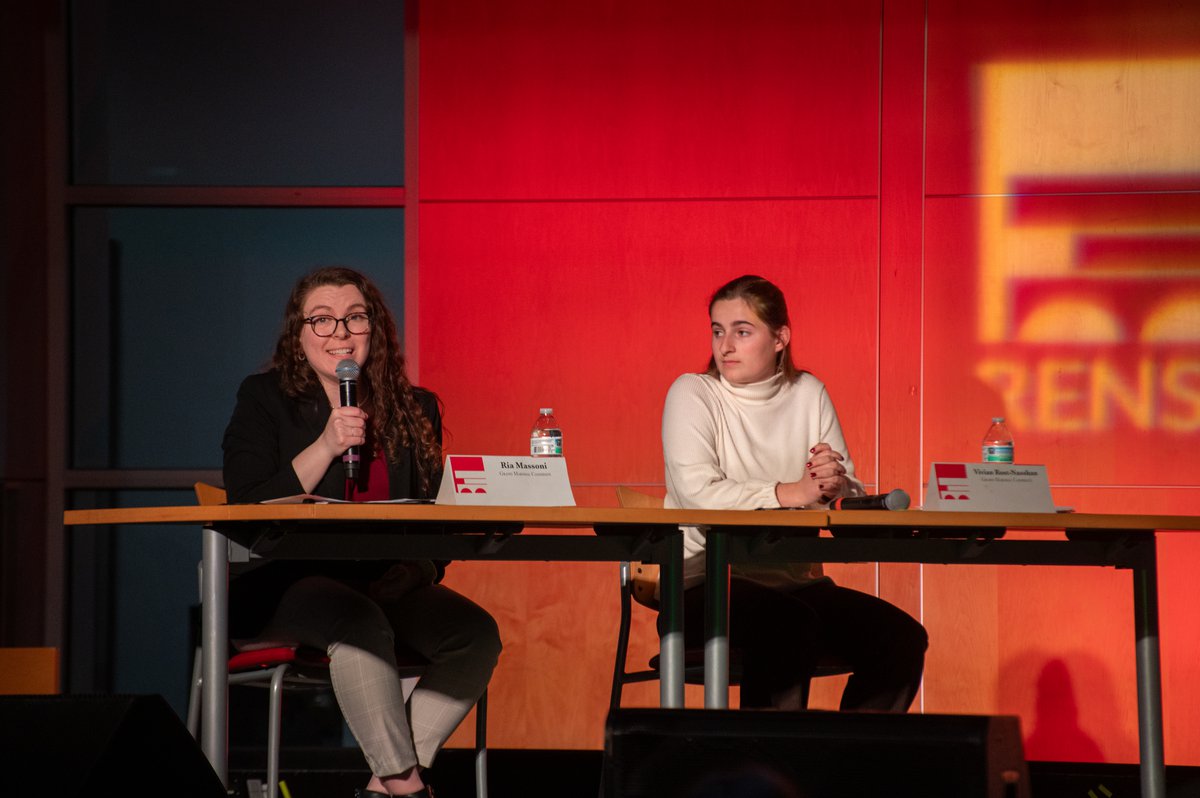Candidates face off in GM Week 2024 debates

Five candidates took the stage for the Grand Marshal Week debate moderated by Elections Committee Chairperson Timothy Miles ’24. The debate offered one last chance for the candidates to present themselves to the student body and share their opinions on various topics and issues. As per previous years, candidates responded to both curated questions and questions from the audience in the Rensselaer Union.
Grand Marshal candidates Ria Massoni ’24, ’25G and Vivan Rost-Nasshan ’26 went head-to-head in the debate. Candidate The Moose, who was sanctioned by the Elections Committee twice for violating election rules, was barred from participating in the debate. In their opening speeches, both candidates highlighted the main parts of their campaigns—Rost-Nasshan reiterated her push towards accessibility and equality while Massoni focused on various aspects such as campus safety and mental health issues. The two candidates overall agreed on establishing clear communication between the Student Senate and Executive Board to avoid issues or be able to resolve them quickly.
A direct question towards Rost-Nasshan was asked in regards to current GM Ben Viner ’24’s endorsement and how to make the Student Senate less “exclusive.” She responded that she wants to make committees to engage with student groups so that committees can more actively represent the students. Rost-Nasshan added that in the past, other running candidates have also been endorsed by current members. Massoni disagreed, saying that having a current GM endorsing a new one discourages people from joining and makes it harder to break down the “cliquey” nature within the student body.
When asked about dining on campus, specifically for those with dietary restrictions, both candidates expressed their understanding of the issue and urgency of the matter. Rost-Nasshan specifically stated that she wants to relax the exemption process and open dining options in the Union, in addition to working with administration on the issue. Massoni spoke about making sure the food at the dining halls are able to cater to all students and wants to work with administration on the issue.
Running uncontested, Undergraduate President candidate Paul Khoury ’26 chose to speak on his discovered love for student government and his plans for his future term. Upon his work in the role of Vice President of the Class Council of 2026, Khoury found a passion for student government he never expected, and aims to make an inclusive and productive environment at RPI. A major part of his platform is that he wants to make bureaucratic procedures more streamlined and minimize the paperwork that clubs and organizations must go through to accomplish their goals. In direct questioning, he was asked about what makes him a special and qualified candidate, so that voters can feel reassured that this unopposed candidate will succeed at his job. Khoury expressed that his abilities as a leader as well as his connections with both students and administration would make him a good voice for students. Additionally, Miles, the debate moderator, asked him how he would separate his work from the work of GM, if it were his predecessor Massoni. He explained that he plans to reach out to class presidents and vice presidents and set up meetings to outline his goals for the future term.
Current PU Catherine Philipps ’24, ’25G is running against Joseph Bowers ’25, a candidate who expressed his desire to simply be “different,” not “better.” In her opening statement, Philipps expressed her goal to help clubs form and function, citing her four years on the E-Board as evidence of having the knowledge and experience to be an effective PU. Bowers opened with a desire to increase club funding and food service revenue. Beyond the financial woes he hoped to solve, Bowers also stressed that a large focus of his term would be on communication. In general questioning, Philipps and Bowers seemed to present similar views and visions for the future of the E-Board. When moderator Miles discussed the story that the E-Board has been regarded as a “secretive tribunal,” guarded and closed off from the general public, both candidates seemed to agree that this notion was largely untrue. Beyond legally undisclosable financial information—as explained by Philipps—E-Board meetings are open to the public.
In response to a question on how political bias would be avoided when it came to the approval of politically affiliated student organizations, both Philipps and Bowers spoke on the recent approval of Rensselaer Voices for Palestine. Philipps explained that since RVP violated no policies that would have prevented them from becoming a club, there was no reason to deny them. Politically-affiliated clubs are not able to receive funding from the E-Board, and both Philipps and Bowers agreed that this effectively prevents the E-Board from demonstrating political bias.
The debate was live streamed by RPI TV. A link to the stream can be found here.

 GM Week 2024
GM Week 2024
 Editorial Notebook
Editorial Notebook